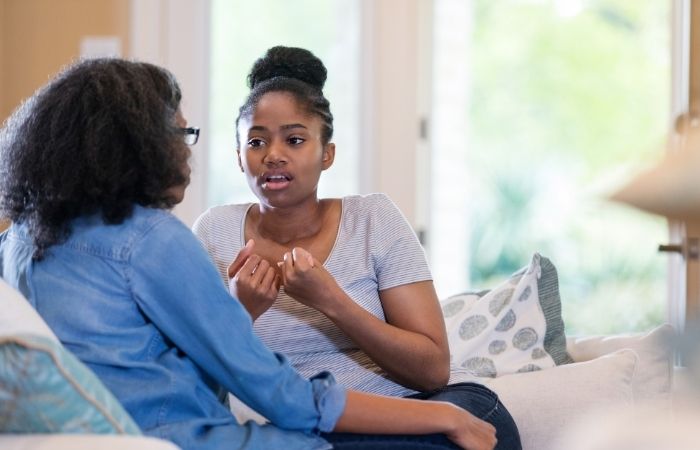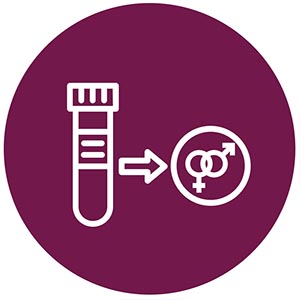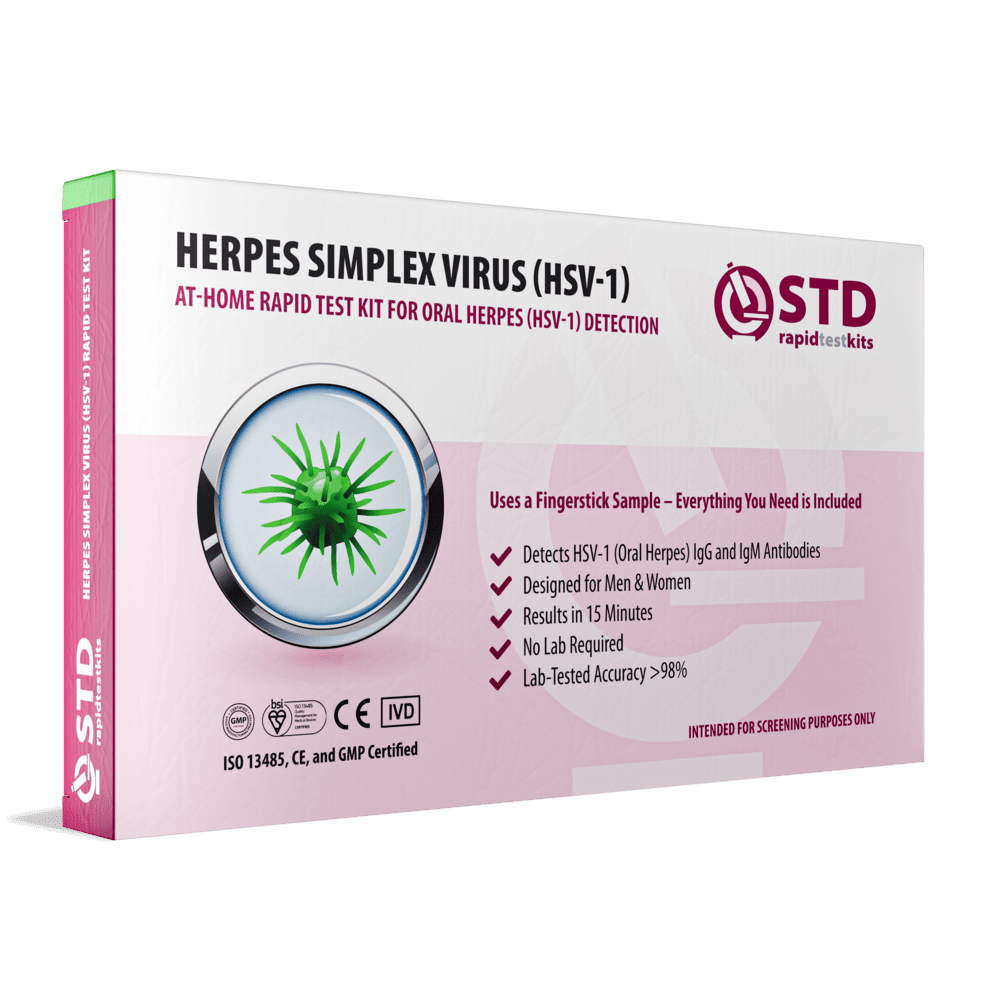You Can’t Get STDs from Oral… Right? Wrong.
This article isn’t here to scare you. It’s here to tell the truth. We’ll break down how STDs can and do spread among people who still call themselves virgins, why your sex ed probably failed you, and what you can actually do to protect yourself without living in fear. You’ll also hear what real doctors and real people have to say, because there’s no room for myths when your health is on the line.
Virginity: A Concept That’s Protecting the Wrong Things
Virginity is a cultural idea, not a medical status. What counts as “losing it” varies wildly depending on who you ask. For some, it’s penis-in-vagina sex. For others, it’s any kind of penetration. And for plenty of people, it’s whatever they haven’t done yet. That ambiguity becomes dangerous when it’s used as a false marker of risk. Because while someone might be a virgin by social standards, their body doesn’t know the difference between vaginal, anal, or oral sex. All three can expose you to sexually transmitted infections. And even without penetration, your skin and fluids are still fair game.
In fact, many of the most common STDs don’t require intercourse at all. Herpes? Skin-to-skin. HPV? Microscopic cuts and contact. Gonorrhea? Oral sex can do the job just fine. People assume they’re safe because “nothing went in,” but pathogens aren’t that polite. They don’t wait for full-on sex to make their move. They just need access.
STDs are adept at exploiting various routes to infect hosts, many of which don't involve penetrative sex. Understanding these pathways is crucial:
- Oral and Anal: A lot of people don't think of having oral or anal sex as "losing their virginity," but these activities can still spread STDs like gonorrhea, chalmydia and HPV, because both the anus and the mouth have mucuous membranes that are particularly vulnerable to all kinds of infection.
- Skin-to-Skin Contact: Some infections, like herpes and HPV can spread by direct contact with infected areas even without penetration. As such, acts like genital rubbing or "dry humping" can spread STDs.
- Shared Intimate Items: Contaminated sex toys or razors can transmit pathogens to mucous membranes or broken skin, leading to infection. Never share razors, and if you're planning on sharing sex toys, make sure to wash them thoroughly and, if possible, use a condom. That's right. Condoms aren't just for penises.
- Kissing: Even kissing can lead to some sexually transmitted diseases, like oral herpes, so no, being a virgin is no protection.

When the Symptoms Don’t Show: The Silent Spreaders
One of the most dangerous aspects of STDs is how quietly they can operate. Many people infected with herpes, HPV, chlamydia, or gonorrhea show no symptoms at all. They go months or years without realizing anything is wrong. And if they’re virgins by definition, they might not even consider STD testing necessary.
This is how infections linger and spread; not through promiscuity, but through silence. A college freshman might go to a clinic with pelvic pain, only to learn they have chlamydia. Their first reaction? Shock. “But I’m a virgin.” The doctor’s response? “Tell me what you’ve done, not what you haven’t.”
The longer someone goes without knowing, the worse it can get. Untreated chlamydia and gonorrhea can lead to pelvic inflammatory disease and fertility problems. HPV can quietly cause cervical cell changes that turn into cancer. Herpes can be passed to future partners, or to a newborn during childbirth. The consequences aren’t just physical, they’re emotional, too. Shame, confusion, and betrayal hit hard when you thought you were doing everything “right.”
Doctors, Diagnoses, and the “Virgin Surprise”
If you ever want to watch a doctor’s eyebrows disappear into their hairline, try telling them you have symptoms of an STD, but “it’s impossible because I’m a virgin.” Most won’t laugh. They’ve heard it before. Many, many times.
Dr. Mary Jane Minkin, a clinical professor of obstetrics at Yale, puts it simply:
“Virginity is not protection. STIs are passed through fluids, skin, and contact, not just penis-in-vagina sex. I’ve treated patients with chlamydia who’ve never had intercourse, but were exposed through oral or manual sex. It happens more often than people think.”
In fact, there are clinicians warning that unwarranted confidence in virginity is actually a danger factor. People, believing themselves to be safeguarded, act less prudently in respect to protection, testing, and sexual health communication with partners. That imprudence is a formula for catastrophe with regard to exposure.
And then there are the stories. Danielle, 24, remembers how confusing her diagnosis was:
“I had only ever had oral sex with one guy. We were both each other’s first. A year later, I tested positive for HSV-1 genitally. I was devastated. It didn’t make sense. But then I realized he had a history of cold sores. No one told me that mattered. No one told us this could happen.”
Carlos, 19, was a self-described virgin who had never even taken his pants off during encounters:
“We dry humped, sometimes naked. That’s it. I got HPV. I felt like a statistic. Like a punchline. I didn’t know I could catch anything through skin.” He now tells everyone to get the HPV vaccine, and to stop trusting that virginity equals invincibility.
These aren't rare outliers. They're just the stories that get told. Most people never share what happened, because they feel too ashamed or confused to speak up. That silence only helps the myths survive.
Why It's So Easy to Get It Wrong
Much of these misconceptions stem from because:
- Lack of proper sex ed (or in some cases, no sex ed)
- Social mores forbidding open discourse about virginity and sex
- The natural inclination to want to wish "clean" people to look or act a certain manner
But STDs don't judge by experience, morality, or appearance. They're viruses, bacteria, or parasites, not moral judgments. Learning and applying that is the secret to reducing stigma and actually taking care of yourself and others.
What Everyone Gets Wrong About Virginity and STDs
If there’s one thing more dangerous than a virus, it’s a bad assumption. Virginity myths have a way of sounding comforting, innocent, even, but what they really do is keep people ignorant and unprepared. Here are the myths that cause the most damage:
“You can’t get an STD if you’re a virgin.”
This one’s the classic, and the most dangerous. Virginity is a social concept, not a biological barrier. STDs don’t need your body to check a definition box. They need skin, fluids, mucous membranes, or broken tissue. That’s it. Whether you’ve had penis-in-vagina sex or not doesn’t matter if your genitals, mouth, or anus have been involved in any kind of activity.
“If my partner is a virgin too, we’re safe.”
Not necessarily. Virginity doesn’t mean infection-free. Your partner might have oral herpes from childhood, HPV from a previous non-sexual encounter, or even a congenital STD passed from parent to child. They may have experimented with someone else in ways they didn’t count as “sex.” All it takes is one unacknowledged exposure.
“If I don’t have symptoms, I don’t have an STD.”
Many STDs are asymptomatic for months, or forever. HPV, chlamydia, and herpes can live in your body silently while still being contagious. The absence of symptoms does not mean you’re in the clear.
“Oral sex is safe sex.”
Not even close. Oral sex can transmit herpes, gonorrhea, syphilis, HPV, and even hepatitis B. If you’ve ever had a partner’s genitals in your mouth, or vice versa, you’ve played the odds, whether you knew it or not.
“STDs only affect ‘promiscuous’ people.”
This myth survives because people want to believe that STDs are a punishment for bad behavior. But the truth is, all it takes is one encounter. One time. One partner. One misunderstanding of what “safe” really means. STDs don’t care how many people you’ve been with. They care whether you were exposed, and whether you knew how to protect yourself.

Why It's Empowering to Know the Facts About STDs and Virginity
Let's be real: talk of sex tends to be masked in shame, bewilderment, and cold hard misinformation. But the minute you start unveiling the curtain around the truth, specifically on STDs and so-called "virgin protection," you gain something much greater than innocence. You gain power.
Here are reasons why it pays to be informed.
It Destigmatizes Testing
Too many people still think, "Only someone who sleeps around gets tested." Nope. Monogamous couples do get tested. People who have never had sex get tested. People get tested because it's the right thing to do, not because they're guilty. Learning about STDs puts getting tested in the perspective of something done out of respect for oneself, and a respect for anyone you're with.
It Protects You and Your Partners
STDs don't have to be traumatic. Most aren't (and won't) show symptoms (or any at all), but can still:
- Cause ongoing health problems
- Be unknowingly transmitted to others
- Cause life-changing complications like infertility or cancer
Knowing that empowers you to get on top of things early, before things get out of hand. And when you're empowered, you empower your future partners too.
It Builds Confidence, Not Fear
Here, we don't want to frighten you. We want to empower you. Understanding how STDs really work makes you a position to feel safer, not paranoid. Instead of relying on outdated myths or assuming you're "safe enough," you can ask questions, voice your concerns, and make informed, confident decisions. Knowledge isn't power, it's protection.

You’re Not “Too Careful” to Be Careful: How Virgins Can Stay Protected
Here’s the bottom line: you don’t have to be sexually active to be sexually vulnerable. If there’s any kind of intimate contact, genital, oral, anal, or skin-to-skin, you’re already in the conversation. And if you’re in the conversation, you need protection. This isn’t about assuming the worst or living in fear, it’s about being one step ahead. It’s about making sure your first time (or your not-quite-firsts) don’t come with a lifetime of consequences.
So how do you stay safe if you haven’t had penetrative sex but are still exploring physically?
First, get vaccinated. The HPV vaccine isn’t just for people who are “active.” It’s for anyone who has a body that could be exposed, and that’s most of us. It’s safe, effective, and best given before exposure, which makes it a no-brainer for teens and young adults who still consider themselves virgins. Same goes for hepatitis B, another virus that doesn’t need intercourse to make itself at home.
Second, use protection even during non-penetrative sex. Dental dams, condoms, and gloves can all reduce transmission risk during oral or manual sex. It may sound awkward to pull out a barrier during what feels like low-stakes intimacy, but you know what’s more awkward? Explaining to your next partner that you got genital herpes from a naked grind session in high school.
Third, communicate. Virginity doesn’t mean innocence, and it sure doesn’t mean invincibility. Ask questions. Talk about past partners, even if there was “no real sex.” Get specific. “We didn’t have sex” doesn’t mean much when you realize you have very different ideas about what counts.
Fourth, drop the shame. Testing isn’t something you do because you’re dirty. It’s something you do because you respect yourself and the people you’re intimate with. You brush your teeth to prevent cavities. You test for STDs to prevent things that could last much, much longer.
You don’t need a wild sex life to need protection. Sometimes, all it takes is one moment, one kiss, one misunderstanding. Virginity doesn’t shield you. Knowledge does.
Get Tested, Yes, Even if You're Still a Virgin
If you’ve had any intimate contact, shared personal grooming tools, or were born to a parent who may have had an infection, testing is smart, not shameful.
You can:
- Visit a clinic or OB/GYN
- Use at-home test kits (many are discreet and accurate)
- Ask your doctor about baseline testing, especially before becoming sexually active
Regular STD testing gives peace of mind, and builds good habits for the future.
“It Wasn’t Supposed to Happen to Me”: When the Facts Get Personal
It’s one thing to read about how STDs can spread without penetrative sex, it’s another to live through it. For many people, the diagnosis comes as a complete shock, not because they were reckless, but because they thought they were safe. They thought virginity was enough. These are the stories of people who followed the rules, avoided “real sex,” and still found themselves facing the one thing they never expected.
Leah, 20
“I grew up in a religious home where abstinence was the rule. So I didn’t have sex, but my boyfriend and I did everything else. Mostly oral, some grinding, lots of touching. We were careful, I thought. He never had any symptoms, and I didn’t either... until I did. A burning sensation, weird discharge. I got tested, and it was chlamydia. I cried for days. I couldn’t wrap my head around how that could’ve happened. I felt betrayed, by him, by my education, by the idea that I was doing everything ‘right.’ But that’s the thing, no one ever told me oral sex could spread it.”
Josh, 18
“I used to joke that I was a virgin with a body count. We’d mess around, fooling around with clothes on, sometimes off, but never actual sex. That was my line. Then I got diagnosed with genital herpes after my first outbreak. I was stunned. I kept saying, ‘But I’ve never had sex!’ The doctor told me it could’ve come from oral, or even from someone with a cold sore during foreplay. Suddenly my definition of ‘safe’ felt like a bad joke.”
Nadia, 25
“I waited until I was married. That was important to me. What I didn’t know was that my husband had gotten HPV years earlier from someone he dated in college, he hadn’t even known he was carrying it. A year into our marriage, my Pap came back abnormal. I tested positive for high-risk HPV. I remember thinking, ‘How did I catch something from the man I trusted most, when we were both technically virgins when we met?’ But the virus doesn’t care about vows. It doesn’t care about technicalities. It was there. So now I have to monitor it for the rest of my life.”
These stories are a reminder that what you haven’t done isn’t always enough to protect you. Sometimes, the thing that makes you feel safe is the same thing that keeps you from asking the right questions, taking precautions, or getting tested. Virginity doesn’t make you immune. But awareness? That can change everything.

FAQs
1. Is it possible to have an STD when you and your partner are virgins?
Yes. If either of you has had any kind of sex (oral, genital sex, mutual toys) or had non-sexual contact (i.e., was born with a strain), there's still some risk.
2. Can STDs be transmitted through oral sex?
Yes. Oral sex transmits gonorrhea, chlamydia, syphilis, herpes, HPV, and even (less frequently than other means) HIV. Barriers like condoms or dental dams cut down on the likelihood.
3. Can a person contract an STD and not even get sick?
Yes. Many STDs, especially chlamydia, HPV, and herpes, don't have symptoms for months or years. You can spread it to others without realizing you have one.
4. Can you get an STD from kissing?
Many STDs aren't spread through kissing, but herpes (especially oral herpes) can be. If a person has visible cold sores, it's more likely to occur.
5. Are home STD tests okay for virgins?
Yes, they're just as good regardless of how much sexual experience you have. They test for the presence of infection, not your activity level. Always use instructions and test through established services.
6. What if I've only done mutual masturbation, can I get an STD?
If there is no skin contact or fluid exchange in the genital area, the risk is extremely low, but not zero. It's still a good idea to wash hands and avoid contact if there are open sores.
7. Do I need to get tested if I've only had oral sex?
Yes. Oral sex can still transmit a number of STDs. Testing is a good idea, even for low-risk activity, especially if it wasn't protected.
8. Do STDs get contracted through sharing towels and razors?
Unlikely, but theoretically possible. Worth being cautious here; herpes infection, for example, or pubic lice infestation are, at least theoretically, possible when using an infecting other's apparatus.
9. Will I get better on my own if I have an STD with no symptoms?
Some illnesses (like chlamydia) can cause long-term harm if left untreated. Others (like herpes or HPV) persist in the body. Always see a medical provider.
10. Can someone lie about being a virgin and still infect you with an STD?
Sadly, yes. Virginity is something one declares for oneself and does not mean that one is STD-free. That's why testing and talking are more important than labels.
You Deserve to Know
It’s easy to feel safe when you’ve never “gone all the way.” Virginity feels like a clean slate, a line that once crossed, brings all the risk and all the responsibility. But real life doesn’t follow that script. It’s messier. It’s grayer. And if no one tells you the truth, you’ll end up walking into danger thinking you’re bulletproof.
STDs don’t care about technicalities. They don’t care if it was just oral, or just hands, or just once. What they care about is whether they had a chance to get in. And the only thing standing between you and that chance is knowledge, communication, and protection.
If you’ve ever had close physical contact, it’s time to stop thinking of yourself as “not at risk.” Virginity won’t save you. But testing will. Vaccination will. Understanding the way your body works, and how infection really spreads, will. Whether you’re planning to stay a virgin or just haven’t had penetrative sex yet, your sexual health still matters. You still matter.
If you’ve ever wondered, “Could I have been exposed?” don’t wait for symptoms to show up. Get tested. At-home STD test kits are discreet and easy. And if something comes back positive, talk to a healthcare provider. Get treated. Ask questions. Get educated. Protect yourself and your future.
You don’t need to have sex to take control of your sexual health. You just need to stop pretending virginity is a force field.










